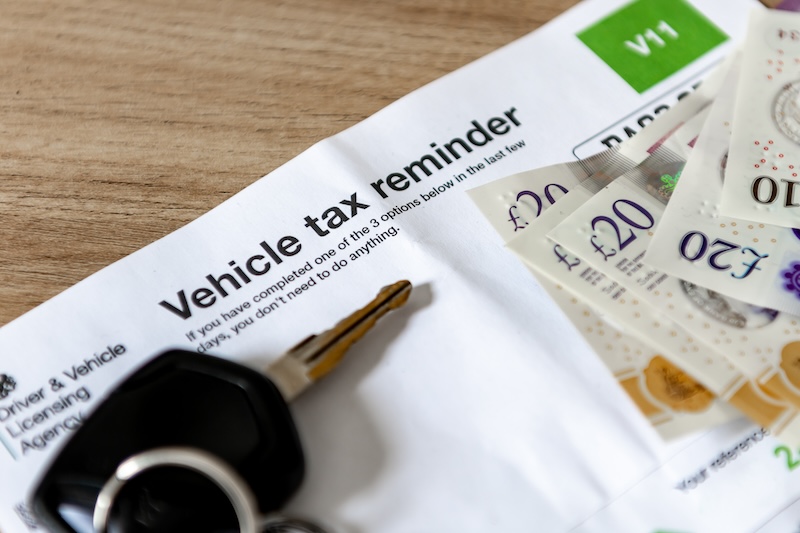Support and advice: tackling the cost of living crisis | 1st Central

Across the UK, we’re all feeling the impact from the rising cost of living. At 1st CENTRAL, we want to reassure you that we’re working hard so we can continue to support all our customers during this uncertain time.
Managing finances can be tough, but having the right car insurance policy can help reduce unexpected expenses. Consider reviewing your policy to ensure you’re not overpaying and are covered for the essentials.
Looking out for our customers
We want our customers to feel as secure and stress-free as possible when it comes to managing and paying for their car insurance. If you’re struggling to pay your monthly instalment, or you’re worried about making your monthly payments on time, we’re here to help.
You can give us a call on 0333 043 2088 – we’re available Monday to Friday 8am to 8pm, Saturday 9am to 5pm and Sunday 10am to 2pm, and our friendly team will be on hand to offer you guidance and advice.
Depending on your circumstances, there’s a number of things we can do to help, such as:
- Updating your policy to reflect your new circumstances (like reduced mileage, change of use or fewer named drivers)
- Moving your payment date
- Spreading your payment
- Cancelling your policy (if appropriate)
There’s some great advice out there to help with difficult financial decisions. For example, if you find yourself in a position where you’re considering whether a payment deferral is right for you, you may benefit from using the Money Advice Service’s Money Navigator tool.
If you continue to face payment difficulties, you can also contact organisations for free, confidential and impartial money guidance and debt advice – you can find out more information about these organisations here.
Be vigilant to scam attempts and fraud
Unfortunately, the cost of living crisis and the volatile environment it causes are creating a surge in fraud and scam attempts. UK Finance figures show that as much as £609.8m was lost due to fraud and scams in the first half of 2022, and with an ever-unstable financial climate, that figure is likely to rise in the second half of the year.
The likes of Purchase Scams, Impersonation Fraud and Investment Fraud are among the key scams for UK households to be on the lookout for. If any scenario involves you parting with money or information, there’s a useful campaign to consider before you do.
Take Five is a national campaign which aims to prevent email, phone-based and online fraud. Their campaign message is:
Stop – Taking a moment to stop and think before parting with your money or information could keep you safe.
Challenge – Could it be fake? It is OK to reject, refuse or ignore any requests. Only criminals will try to rush or panic you.
Protect – Contact your bank immediately if you think that you have fallen for a scam and report it to Action Fraud.
You can find out more about Take Five here.
How your daily habits can help save the pennies
There are a number of things you can do day to day that can help bring down expenditure, even when it comes to your car. For example, did you know that fueling up at a supermarket can help you save money?
These are some of our handy tips and tricks to help you save pennies and better weather the cost of living crisis:
- Fuel up at the supermarket
One of the simplest ways you can save on fuel is to fill up at supermarkets. Every car engine is compatible with supermarket fuel – so you can ignore the myths about it being less efficient or bad for your engine. In general, supermarket fuel is significantly cheaper than that of big oil brand stations, so you can save a few quid by choosing to top up at your local Tesco, for example.
- Heat the human, not the home
If you’re hesitant to put the heating on to heat up your home, you can focus instead on heating up yourself. MoneySavingExpert put together this guide to how best to keep yourself warm without relying on central heating.
- Make use of government help and grants
These days we need all the financial help we can get, so it would be wise to seek out government grants if you’re eligible. According to Entitledto, over £15 billion is being unclaimed by low-income households across the UK. This means millions of our poorest families, young people and old people, disabled people, job searchers and workers are not getting the help they are entitled to. If you fall in this bracket or want to see if you can claim extra support, try using the Turn2Us benefits calculator.
- Lighten your carload
Just emptying your boot before you drive can save you money. On average, every 50kg increases your fuel consumption by 2%. So, removing unnecessary items from your vehicle (and even ditching your roof rack) can reduce the cost of your daily commute.
- Build a good credit score
A strong credit score can open the door to lower interest rates and allow you to forgo deposits for certain contracts. It can even help you lease a car. What’s more, having a good credit score often equates to a higher credit card limit, which can come in handy for car payments and mortgages. To up your credit score, make sure you pay your bills on time and pay off contracts regularly.
- Are you being underpaid?
Up to half a million minimum wage employees may not be getting paid for all the time they’re classed as working, while other employees may have to buy items to do their job which they haven’t expensed. This useful guide to National Minimum Wage explains more.
- Monitor your fuel economy with an app
Did you know there are apps for tracking fuel miles per gallon? Apps like Auto Care, Fuel Monitor, Road Trip, and Fuelly can help you manage your fuel economy day by day, and work out ways to improve it. Apart from money, these apps can also save you time and effort if you’ve been managing your record manually. (We all know filing receipts can be a nightmare!)
- Get help with rising energy prices
A number of households in England, Wales and Scotland will be able to get up to £1,500 of Government support, with the idea of helping households with paying energy bills. If you’re still worried about being able to pay for your energy bills, it’s recommended to talk to your supplier to agree a repayment plan that you can afford.
For more information around the cost of living crisis and how best to protect your finances, we recommend keeping up to date with the articles and advice published on MoneySavingExpert.


